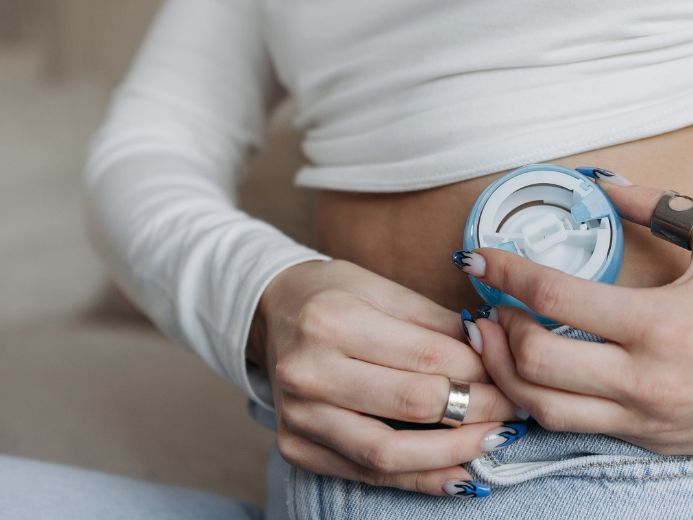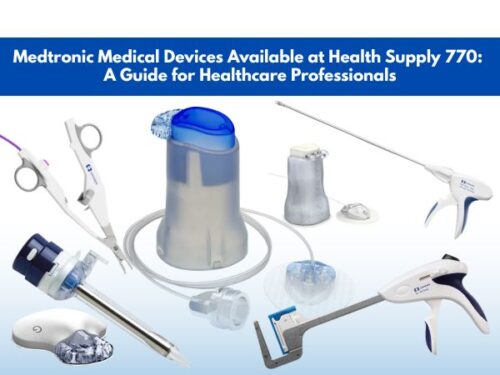Insulin Pumps and Pediatric Diabetes: A Guide for Parents

When we consume food, our body releases a protein-based hormone called insulin. This insulin works by opening the cellular pathways or pumps present in the cell membrane thus making a way for the glucose to enter the cells where it is metabolized to prepare energy. However, people who are diabetic either cannot make insulin altogether or their cells are desensitized to its action, two conditions that are medically referred to as Type 1 and Type 2 diabetes. Thus, patients with Type 1 diabetes often require exogenous synthetic insulin to fulfill their bodily needs and keep energy production going. Here comes the utility of insulin delivery devices including insulin pumps, pens, jets, syringes, etc. Let us understand what an insulin pump is and what efficacy it has especially in pediatric diabetic patients.

Statistics Regarding Pediatric Diabetes in the US
According to the Centers for Disease Control and Prevention (CDC), Among 28.7 million people living with diabetes in the US, 283,000 are children and adolescents who are below the age of 20. This estimates that 35 children among every 10,000 are diabetic. Each of these individuals requires proper medical care and a basic understanding of the ways needed to be implemented to manage their diabetes.
What is an Insulin Pump?
An insulin pump is a small, compact, computerized device designed for the regulation of insulin as well as sugar levels in the blood. These devices are fashioned in a way that they deliver a pre-specified dose of insulin at programmed time intervals.
Characteristics and Advantages of Insulin Pumps
An insulin pump provides the following advantages:
● Insulin pumps are adjustable and can deliver doses consistently.
● These devices provide flexibility in dosing along with complete privacy to the patient.
● The patient who uses an insulin pump gets rid of the frequent injections.
● An insulin pump can be adjusted based on the patient’s activity level.
● If an insulin pump is attached to a Continuous Glucose Monitor (CGM), the device can detect the glucose level fluctuations and release insulin accordingly.
● The pump is easily wearable and can be carried in a pocket, on the belt, or under the clothes with the help of a strap. Moreover, adhesive patches can also be employed to fix the insulin pump on the patient’s stomach or arm.
● Their superiority over other insulin injecting means such as insulin pens has been prominent.

Who Needs an Insulin Pump?
An insulin pump is most suited for the patients who experience any of the following conditions:
● If there is a delay in food absorption, insulin pumps can be utilized to speed up the process.
● In case the body experiences a severe reaction to diminishing glucose levels, insulin pumps can help decrease the lower spikes and convert the glucose levels towards being steady.
● If a diabetic patient is planning on conceiving, the fluctuations in the blood sugar levels need to be minimized. For this purpose, insulin pumps can be helpful.
Insulin Deficiency and Pediatric Diabetes
If, in the case of pediatric diabetic patients, the supply of insulin is disrupted, the likelihood of the occurrence of ketoacidosis increases tremendously. As a result, the child may experience nausea and vomiting as a response to the deficiency of insulin. Therefore, to avoid this situation, a blood glucose level measurement should be taken every 3 to 4 hours based on the recommendations suggested in research published in the World Journal of Clinical Pediatrics. To manage this condition, a consistent supply of insulin should be injected into the body via an insulin pump.
Choosing the Right Insulin Pump for Your Child
While choosing an insulin pump for your child, certain factors ought to be considered. One must ask the following questions to oneself or to their child before switching to an insulin pump:
● Is the diabetic child underweight?
● Do frequent injections affect your child’s quality of life?
● Is your child suffering from needle anxiety?
● Is your child physically active throughout the day?
● Is your child comfortable with using an insulin pump?
Based on the answers to the above-enlisted questions, your doctor may or may not advise the use of an insulin pump. If an insulin pump is recommended, one should look for a device with the most suited features according to the patient’s needs. Remember that:
● The pump should be lightweight and easy to use.
● It should be age-appropriate for your child.
● It should preferably be water-proof.
● Insulin pumps should be cost-efficient.
Issues Regarding Insulin Pumps Use in Pediatric Patients
According to another study published in Diabetes Technology & Therapeutics, parents of pediatric diabetic patients were enrolled in a survey to find out the barriers to using an insulin pump. The findings revealed the parent’s concerns about the physical interference as well as the therapeutic efficacy of the insulin pumps.
Moreover, the financial perspective was also mentioned as a barrier to the use of insulin pumps despite their effectiveness in improving their child’s quality of life. Considering these study outcomes, parents need to be more convinced regarding the proper use of insulin pumps. Furthermore, prices of essential devices such as insulin pumps should be maintained at affordable values.

A variety of medical instruments and equipment, along with many other medical supplies, can be purchased from Health Supply 770, a reliable name when it comes to medical products. They have a 30-day money-back guarantee and provide your products to you in the shortest possible time.
Conclusion
Fluctuations in the blood insulin levels are one of the health-related issues that are being faced by the masses at the global level. These fluctuations, when experienced frequently, are an indication of Type 1 diabetes mellitus.
For the management of this disease, the physicians often recommend the use of insulin delivery devices including insulin pumps which deliver a pre-programmed dose of insulin to the body when needed. As their efficacy is well-established, insulin pumps become one of the best insulin delivery devices, especially in pediatric patients.
References
https://www.cdc.gov/diabetes/data/statistics-report/diagnosed-diabetes.html



















